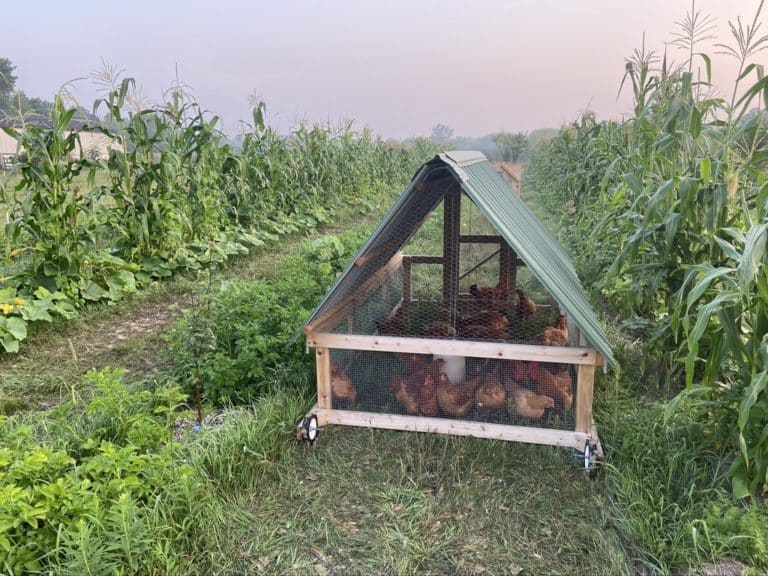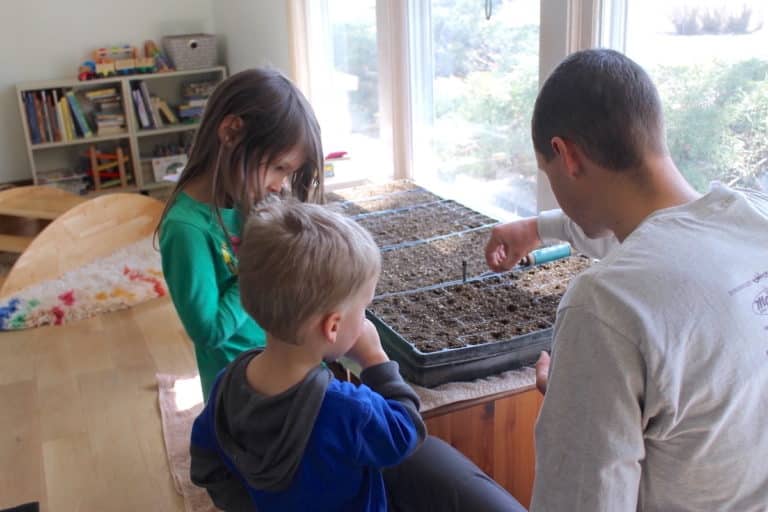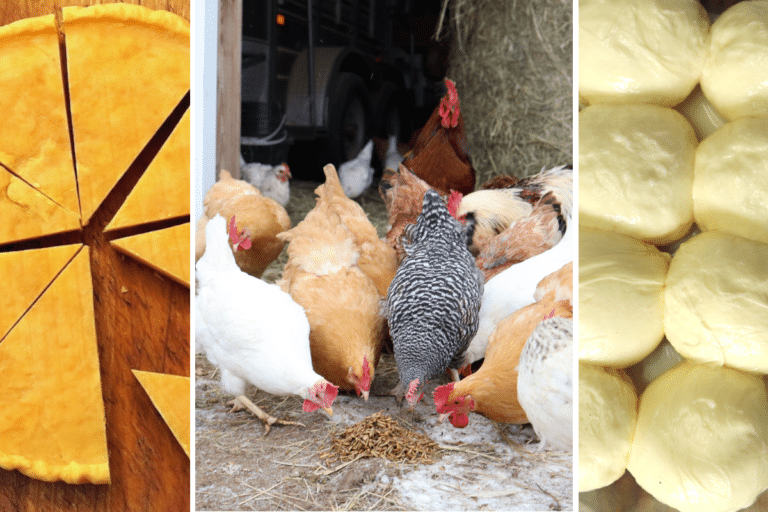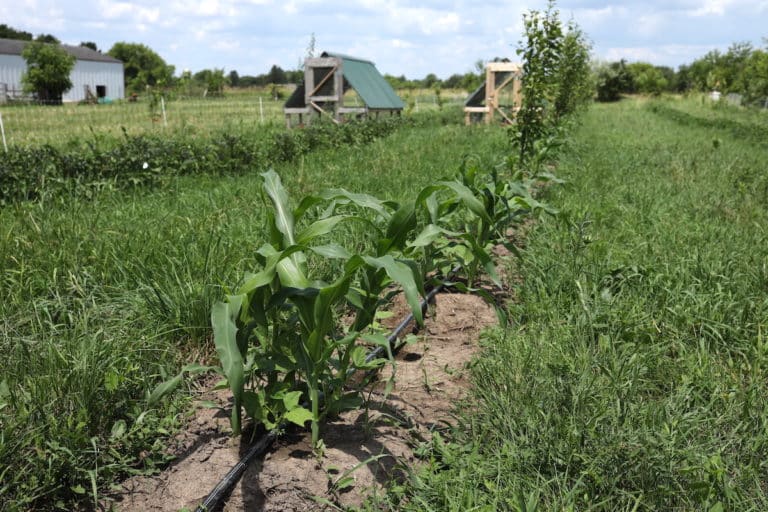Top 10 Resources and Tips for Finding Farmland
So you’ve got the farmland itch! Maybe you have a farm business idea. Maybe you’re dreaming of some acreage in the country from your urban or suburban setting. Or maybe you just like farmland as an investment. These 10 resources and tips for finding farmland will increase your odds of finding what you are seeking!
Our Deep Dive Into The World of Farmland Finding
Our own farmland journey took us from the suburbs, to a rural town of 411 people, to our current 5-acre homestead in a semi-rural area.
Additionally, I spent a couple years professionally engaged in farmland finding through a local agricultural non-profit.
I worked one-on-one with farmers helping them find their ideal farmland. This experience allowed me to meet many farmers, homesteaders, and farmland owners, all with unique stories, visions, and strategies behind their farmland.
Some of my main takeaways were:
1. Farmland is being transitioned. The average age of farmers in America is now 57 – many without a family member or successor to take over the operation. In the next decade, it’s estimated that over 40% of farmland will be transitioning ownership. This is an unprecedented opportunity!
2. Farmland is a solid investment. Farmland, often compared to gold, grows with inflation over time and can be a great source of passive income.
3. Creative leasing options exist. While the steep upfront cost of purchasing farmland is prohibitive to many new and beginning farmers, leasing farmland can create an affordable solution that can benefit both farmers and landowners.

4. Farmland owners’ care. An increasing amount of farmland owners care deeply for their farmland, its future, and other environmental concerns. Their desire is to see their land transitioned to or used by farmers who share those values.
5. The desire to reconnect with land and food is real. Much like the “back to the land” movement of the 60’s and 70’s, the modern homesteading movement has created a yearning for a more simple and rural life to reconnect with their agrarian roots by growing their own food.
Wherever you find yourself in that spectrum, searching for farmland is an exciting and worthwhile endeavor!
Farmland Finding – 10 Resources and Tips for Success!
You have your search criteria dialed in. You know the location or radius you’re looking within. And you’re ready to get going on your search for your dream farmland property!
But finding what you’re looking for isn’t always easy. The road can be long with many twists and turns. And you can even feel alone or like you don’t have the right people on your team.
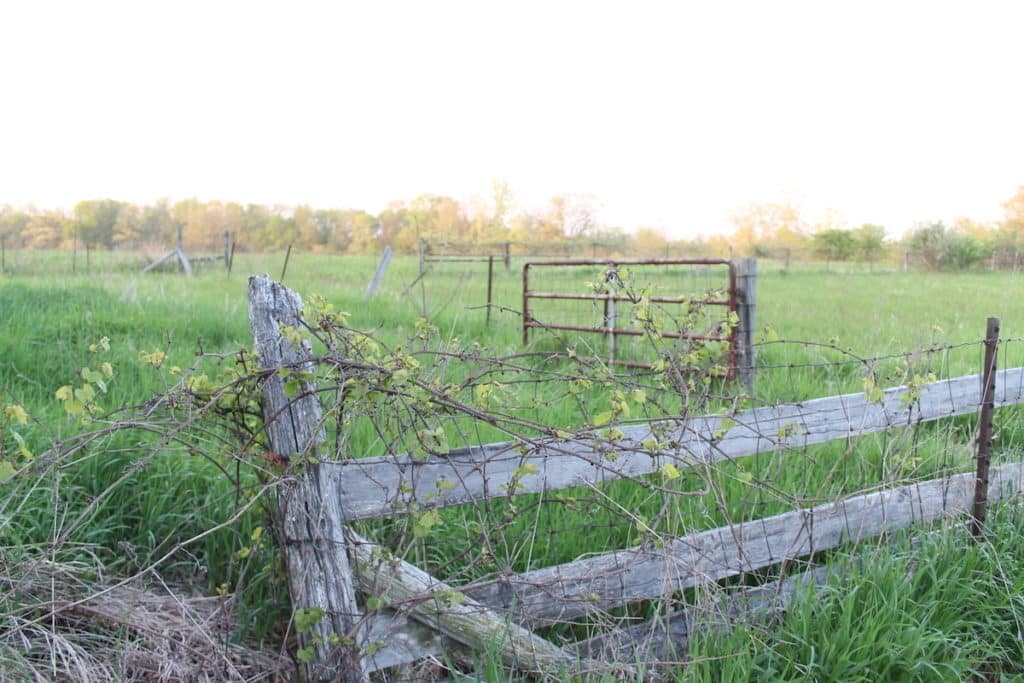
We get that. Navigating our own farmland finding journey taught us many lessons. But ultimately, we found our 5-acre homestead property that we couldn’t be happier with! So, let’s jump into the resources and tips we’ve found to give you the best odds of success.
1. Use Real Estate Search Websites Strategically
You will likely work with a realtor in your search. But don’t rely FULLY on them! You need to take the drivers seat in your search. Take an active role, not a passive one.
Real estate search websites like Realtor, Zillow, and Redfin make taking the reigns of your search easier than ever. You can setup your own search and receive emails or notifications when new properties hit the market. This farmland search video shows the basics of setting up a search on these websites that is optimized for finding farmland.
The other key is to check your search results often – at least once a day. The farmland market can be highly competitive. The reality is that your realtor has other work obligations and personal obligations. They may not be able to notify you immediately when a property of interest comes up.
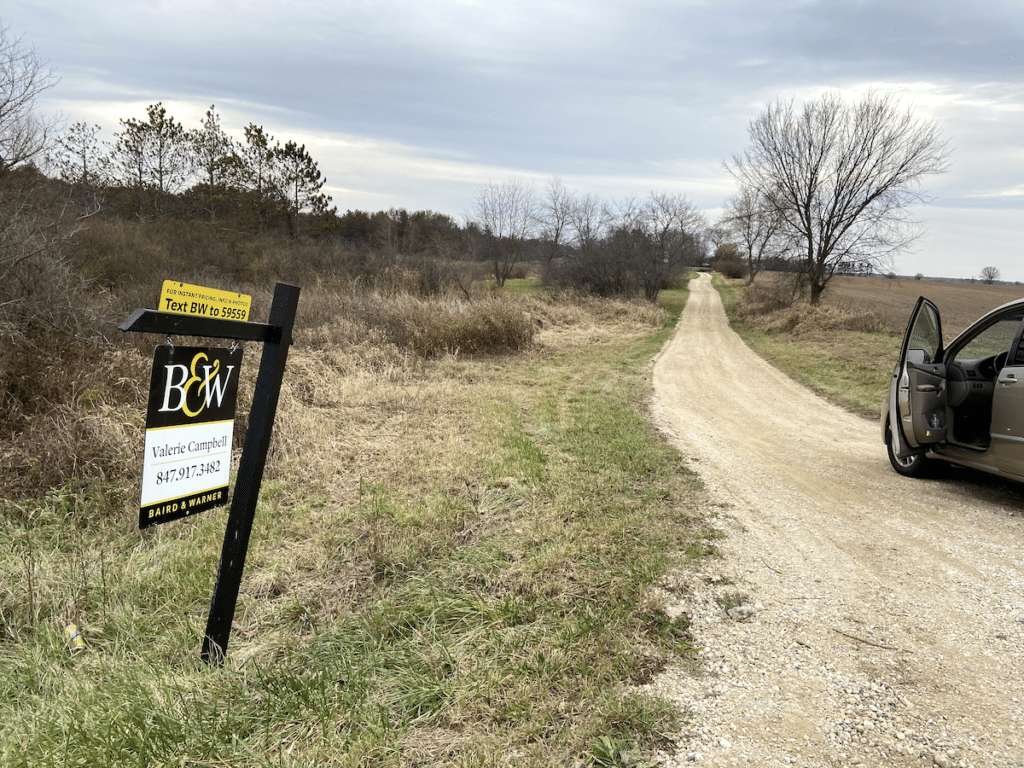
The sooner you see a property, the sooner you can alert your realtor, setup a showing, and put together an offer when the right opportunity comes along. This can give you a huge advantage.
2. Find a Realtor that Knows Farmland
Just like in any profession, realtors specialize in different facets of real estate. Farmland is unique. And finding a realtor who knows farmland like the back of their hand and how to handle farmland transactions gives you the best odds of finding the right fit. Here’s why.
First, they will be able to advise you on the unique aspects that can pop up on farm properties. Wells, septic, barns, fencing, fields. You might not be familiar yet with these sorts of things yourself, so having input from someone knowledgeable can be priceless.
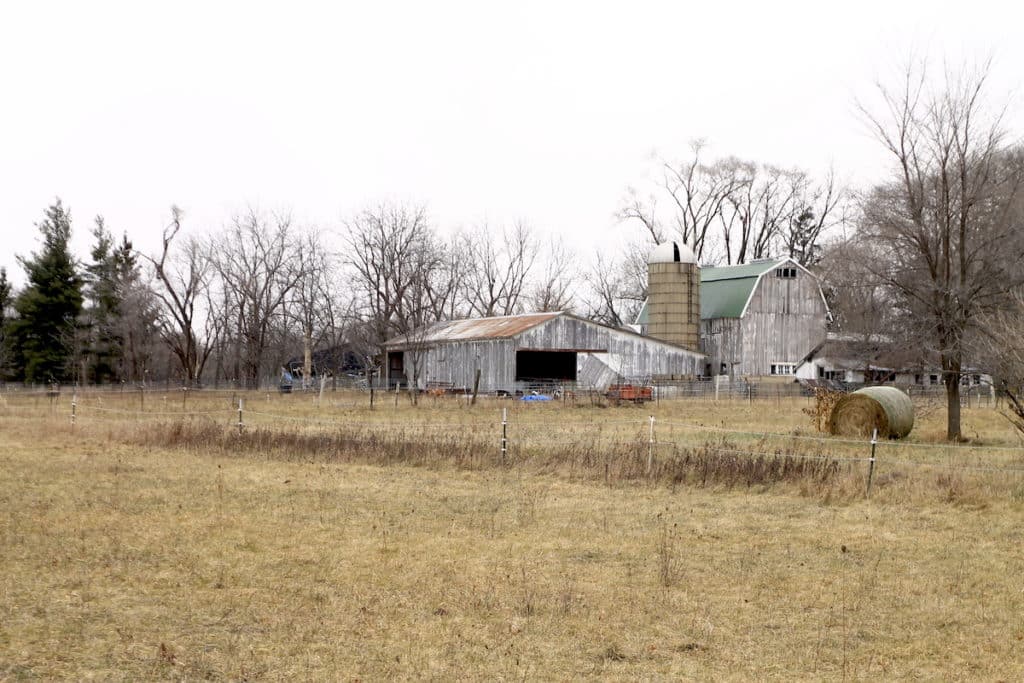
Second, these realtors will often catch first wind of when farm properties do come available. They tend to have deep connections and ties within the local farming community and might be able to let you know or new listings early. Maybe even before they hit the market!
It’s not always the easiest to find a realtor specializing in farmland. But a good starting point is to see which realtors are getting the majority of the farmland listings in the area you’re searching in. You can also check with realtors you know or friends within the farming community to see if they know of any realtors they recommend.
3. FarmLink & LandLink Sites
A FarmLink or LandLink site is essentially an online matchmaking service between farmers and landowners. Some of these sites have been around for decades, like in California or New York. But many more are popping up around the rest of the country, especially in the last decade.
Farmland owners can create a profile describing the sale or lease terms of their land. These are opportunities typically not available through standard real estate sites. They might include:
- For sale by owner opportunities
- Lease or lease-to-own opportunities
- Farm transition opportunities
- Other unique options of farmland partnership, collaboration, or investment
Oftentimes, farmers or homesteaders can also create a profile on FarmLink or LandLink sites describing their desired location and search criteria.
This national directory is a great place to search for a FarmLink site in your area, state, or region. You can also just do a search for one in your area. It’s worth checking out their staff services as some may even offer help in your search to guide you toward other local tools, resources, connections, or opportunities that they know of.
4. Farmland Conservation Easements
A farmland conservation easement protects farmland from development and secures its future for agricultural use. All farmland has a value associated with its development potential. The closer the farmland is to urban areas, the greater this value is.
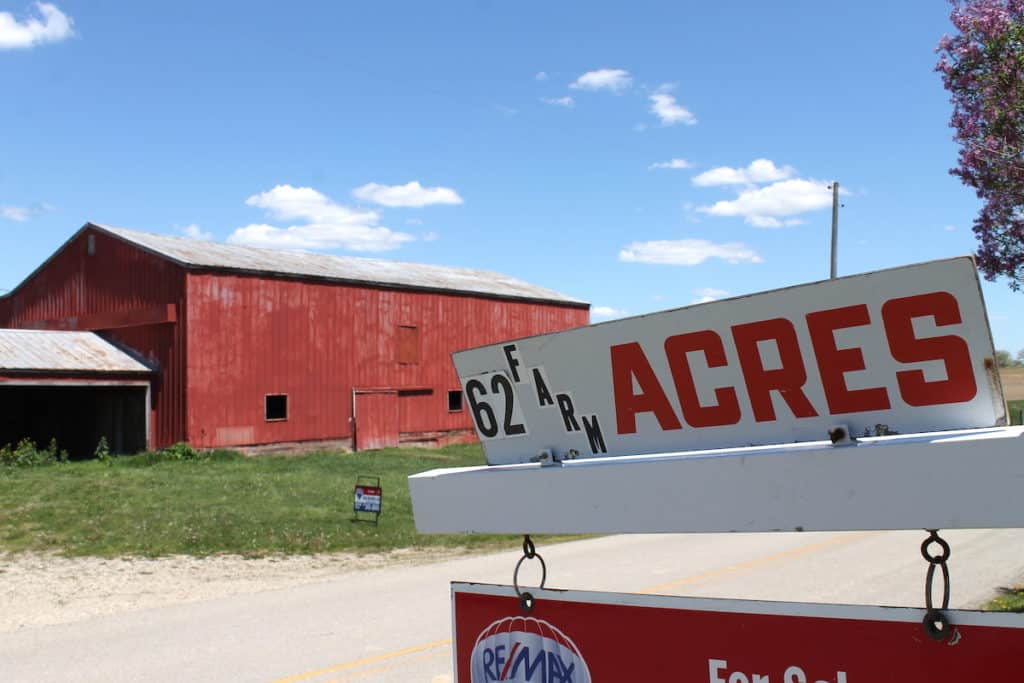
Farmland conservation easements are typically held through a local, regional, or national land trust or land conservancy and have the potential to reduce the overall cost of farmland by it’s associated development value. The goal is to make farmland more affordable for farmers with a shared value to meet conservation criteria outlined in the easement.
This webinar – Farmland Conservation Easement 101 – gives a much more in-depth explanation by conservation easement experts, along with helpful case studies where conservation easements were used.
5. Network with Other Farmers or Landowners
This boots on the ground approach can easily prove to be your best bang for your buck in your search. Think going door to door, making phone calls, visiting local bars or restaurants, or going to other events where farmers are congregated locally. The goal is to meet people, have conversations, and see what opportunities might surface.
One great place to do this is your local farmer’s market. Get to know the farmers there. Share your story and what you’re looking for. See if they know of any neighbors possibly moving or other potential farmland leads. I worked for a farmer’s market for one summer and caught wind of two farmland opportunities there in that short time; one of a farmer retiring and selling his land and the other of a farmer’s relative passing and the farmland going to auction.
In this approach you are going out and searching for opportunities that no one else might even know about. Yes, it takes gumption and putting yourself out there. But the dividends can be tremendous!
6. Market Your Search
There are endless possibilities to sow seeds broadly and put the work out there about your search. Here are some ideas.
- Create a one-page printout that describes the farmland you’re looking for along with your vision and goals for the land. You can have this on hand to physically hand to people you meet and talk to along the way. Or, you can post it on boards at your local feed store, library, coffee shop, or anywhere else farmers might pass through.
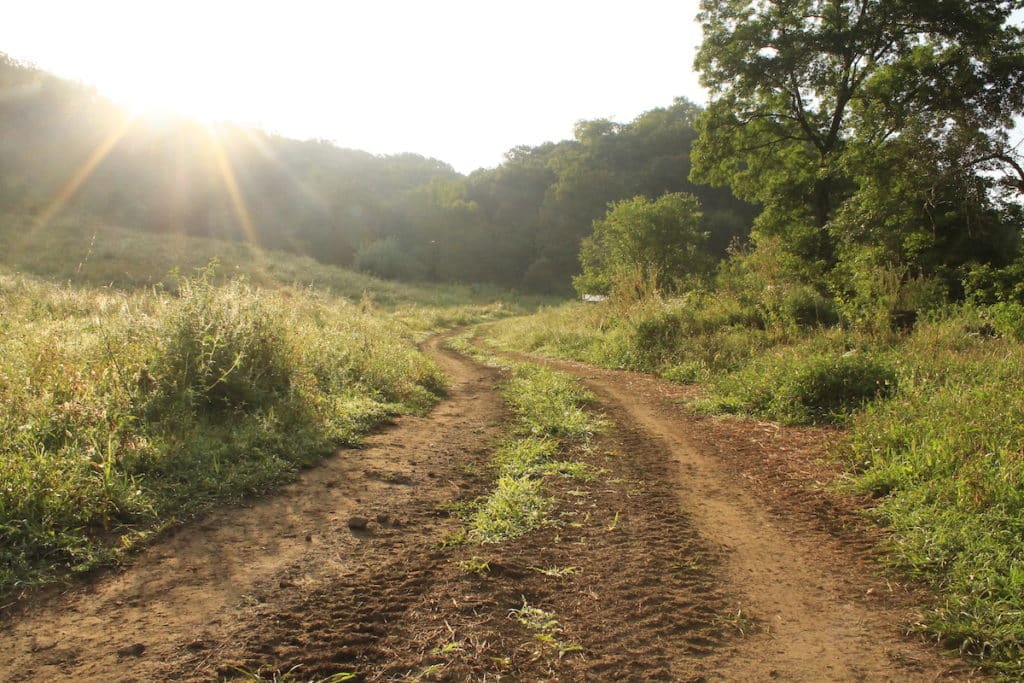
- Local farming and food Facebook groups. These groups can also have deep ties within the local farming community and sharing your farmland search within these groups might help generate leads that aren’t publicized elsewhere.
- Social Media. Don’t wait until you have a farm to start your social media presence! Documenting the good and hard, peaks and valleys of your search can help others connect with you on an emotional level and maybe even lead to opportunities.
7. Search the Internet
The internet offers some really quality resources and tools to aid your farmland search. Yes, it’s fine to start by punching “farmland for sale (or lease) near me” in a search engine and seeing what pops up. But here’s some options to take you deeper:
- Facebook Marketplace or Craigslist. Yes, farmland leasing or for sale by owner opportunities do pop up on these sites! Don’t discount them. Check occasionally to see what pops up.
- County GIS Maps. Most counties have an online GIS (Geographical Information System) map available. Some are more developed than others, but they can offer a wealth of information on topographies, zoning, soil types, flood zones, easements, and more. Occasionally you can even dig up information about a landowner or how to reach them.
- Niche Farmland Real Estate Sites. Beyond Zillow, some local real estate companies specialize in agricultural listings. Their services may include farm management, transition/succession consulting, or real estate transactions. These companies sometimes have listings not found on standard real estate sites.
- Farmland Value Calculators. Sites like AcreValue can provide you with helpful information when considering a particular piece of farmland. Their algorithms can also provide you with an estimated price per acre for the land.
8. Local Farm Auctions
Auctions are deeply engrained in the rural farming culture. While the number companies offering farmland auction services is on the decline, a decent amount of farmland still goes to auction.
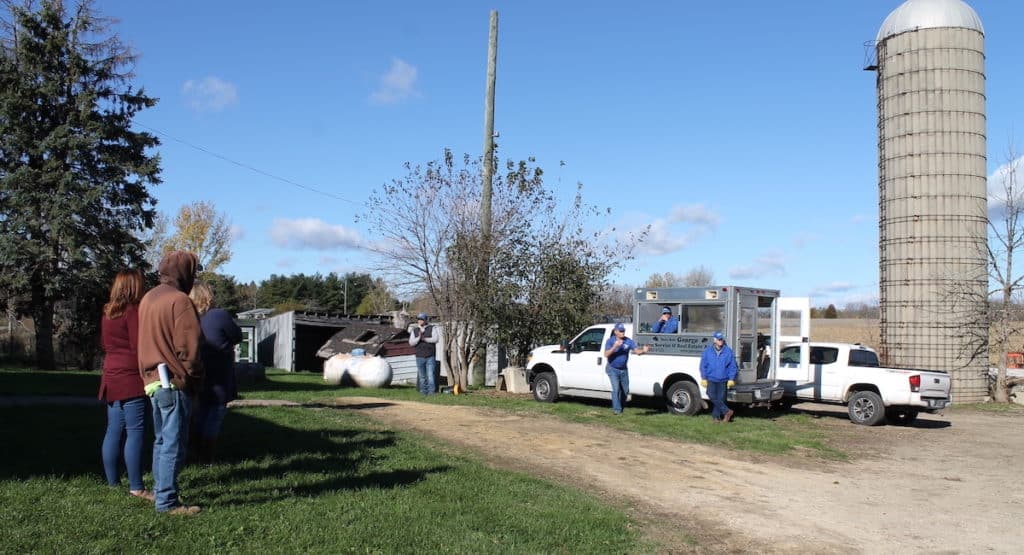
This shouldn’t be your top strategy, but tracking down your local auctioneers and regularly checking the upcoming auctions is worth keeping on top of. Plus, attending these auctions is another great opportunity to network through meeting farmers and landowners. You’ll likely walk away learning some things about farmland and gained a better understanding of the local farming culture.
9. Local Conservation Organizations
Conservation districts, soil and water conservation districts, or other agricultural non-profits are prominent players within the local farming scene. Sometimes, these organizations own their own farmland and lease it to area farmers.
Reaching out to them could surface resources or connections you won’t find elsewhere. I’ve seen examples of these local conservation organizations helping networking, farmland leads, maps and data, or advice in your search.
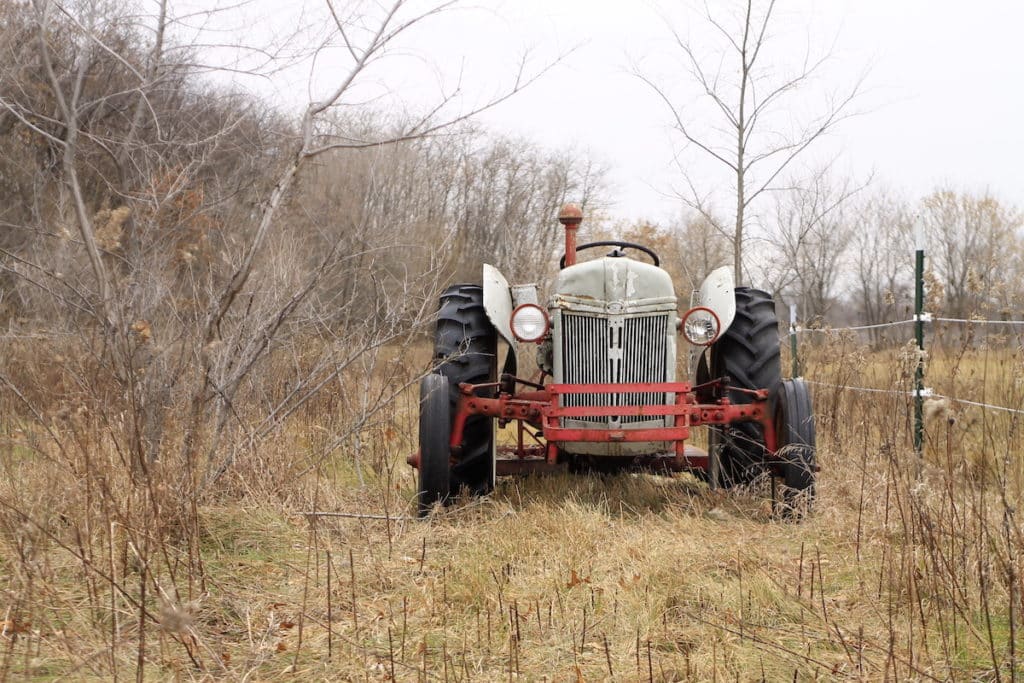
And if you’re looking to lease land, its worth inquiring about opportunities they may have. Locally, two separate conservation districts made leasing opportunities available for unique farming enterprises. One was for leasing 20 acres of farmland to a local food farmer that was being transitioned to organic farming. The second was a prairie restoration project where a local bison farmer won a bid for expanding their bison grazing operation.
10. Recruit Others in Your Search
The final tip is to not go at it alone. Navigating your farmland search alone will leave you discouraged and feeling stuck. Recruit family, friends, non-profits, farmers you know, and any others to join your farmland finding team. Share openly what you’re looking for!
Especially if you know people within the area you are searching, ask them to be your eyes and ears to be on the lookout for for-sale-by-owner opportunities, talk to neighbors, or stay attuned to any other opportunities that might be out there.
Non-profits might have farmland finding navigators or consultants to help coach and encourage you throughout your search.
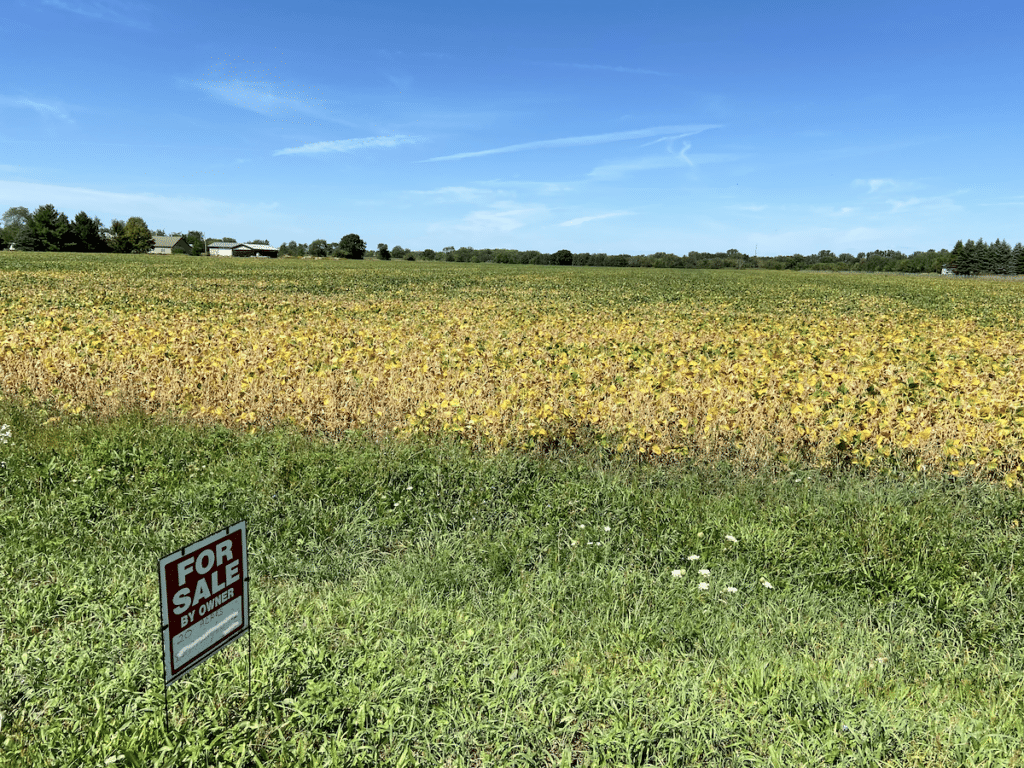
The broader your web, the better the odds of finding what you’re looking for and be able to weather the storms when things don’t go how you’d hoped.
What’s the Best Approach for Finding Farmland?
No magic formula exists for finding farmland. The best approach is to diversify your search with the strategies and tactics that work best for you. Pick out a couple of the resources and tips listed above and go after them.
Stay committed to your strategy. Be innovative. Put yourself out there. Get rid of any expectations of how long your search should take. And opportunities are sure to come your way!
Looking for more resources on finding farmland? These posts might help!
- Buying a Homestead on a Budget
- Why a 5-Ace Homestead is the Perfect Size for a Beginner
- Farm vs. Homestead vs. Farmstead | What They Are and How To Choose
- Benefits of Rural Living on a Homestead
- Setting Up a Homestead Budget for One Small Income
Pin it for later!


